We love cats. We adore cats. But let's face it—sometimes, they stink. Whether it's a particularly pungent litter box, the mysterious scent of something sprayed in the corner, or just the unmistakable aroma of 12 pampered felines living their best lives in one building, the odor is the not-so-glamorous side of running a cat-boarding business.
If you're the proud owner of a cattery, you already know the struggle. A bad smell can leave a lasting impression on clients—and not the kind you want. That's why cattery odor control isn't just about keeping your nose happy; it's about protecting your brand, reputation, and the comfort of every whiskered guest in your care.
So, if you've ever walked into your kennel and muttered, "What is that smell?!" then this one's for you.
Here's how to keep your cattery fresh, your clients impressed, and your cats relaxed.
The Litter-Box Lowdown (a.k.a. Where the Funk Begins)
Let's not beat around the bush: this is the number-one offender in the fight against smell.
Tips to reduce litter box smell:
- Scoop often—we're talking at least twice a day, and more if you're at full capacity.
- Use a high-quality, clumping litter that locks in odor and makes scooping easier.
- Assign a box per cat. The golden rule: one litter box per cat plus one extra.
- Choose covered litter boxes with proper ventilation or open trays with high sides to reduce scatter and contain the mess.
Some clients may provide their own litter or request special accommodations. That's fine—just make sure you're tracking it all in your cattery software so nothing gets lost in the shuffle.
Pro Tip: Adding a thin layer of baking soda under the litter can work wonders without irritating feline noses.

Don't Sleep on Ventilation
No matter how hard you clean, if the air isn't moving, the smell will not go away. Ventilation is one of the most overlooked aspects of keeping a cattery clean.
How to improve air quality in your cattery:
- Invest in a high-quality HVAC system or commercial-grade air purifier with HEPA filters.
- Open windows whenever possible (safely screened, of course) to let in fresh air.
- Install ceiling or exhaust fans to keep air circulating in larger spaces.
- Clean air vents and filters regularly. Dirty filters trap odor and redistribute it.
Pro Tip: Skip the heavily scented sprays and plug-ins. Cats are scent-sensitive, and overpowering smells can lead to stress—or worse, respiratory issues. Your goal: neutralize, not mask.
Embrace Your Inner Clean Freak
A regular cleaning schedule is non-negotiable if you want to reduce odor in your cat boarding business. That quick tidy-up you do between drop-offs? Not enough.
Your cat kennel cleaning checklist should include:
- Daily: Scoop litter, wipe surfaces, remove trash, spot mop any accidents.
- Weekly: Deep clean all kennels, floors, walls, and feeding areas.
- Monthly: Wash windows, sanitize carriers, scrub behind furniture, and check for hidden messes.
Stick to pet-safe, enzyme-based cleaners that target organic waste (urine, feces, vomit) and break down odors at the source.
Pro Tip: Use a digital scheduler to assign and track cleaning tasks across your team. No more "I thought you did it."

Laundry: The Unsung Hero of Odor Control
Cat beds, blankets, towels, rugs, and toys are major odor traps—and let's be honest, when was the last time you washed those plush mice?
Laundry best practices for your cattery:
- Use fragrance-free detergent (sensitive kitty skin approved)
- Add white vinegar to the rinse cycle for odor elimination
- Dry items thoroughly to prevent mildew (hello, second wave of stink)
- Keep a regular rotation, so you're never reusing damp or soiled fabrics
Pro Tip: Store clean laundry in sealed bins away from the main boarding area. No need to let fresh linens absorb lingering smells.
Hair Today, Gone Tomorrow
Shed cat hair and dander aren't just messy—they can be smelly, especially when mixed with humidity and time.
Combat fur funk with:
- Daily vacuuming, especially around kennels, cat trees, and corners
- Lint rolling or brushing fabric furniture
- Using washable rugs and mats that can be laundered weekly
- Grooming guests regularly, especially long-haired breeds
If you offer grooming services, use it as an upsell—but even a quick brush during playtime can reduce shedding.
Know Your Guests: Stinky Cat or Health Issue?
Sometimes, a persistent smell can be a red flag. If one cat's litter box clears the room, it might be time to inform the pet parent.
Odors to watch for:
- Ammonia (urinary tract issues)
- Foul-smelling stool (dietary sensitivity or parasites)
- Fishy scent (anal gland issues)
- Sweet/fruity smell (could signal diabetes)
You're not a vet, but you are on the front lines. Noticing changes in a cat's behavior or scent is a vital part of quality care. Use your intake notes, and don't be afraid to gently inform cat parents if something seems off.
Educate Your Humans
Clients can unintentionally bring in the stink—like sending Fluffy in with a stinky bed or crusty carrier.
Be proactive:
- Send pre-boarding checklists with reminders about clean bedding (no one needs to risk bed bugs!)
- Offer laundry service or on-site grooming as an add-on.
- Explain your odor-control process in onboarding materials—it shows you're professional and detail-oriented.
Educated clients are your best defense against surprise smells.

Track the Stink: Use Your Software
Running a busy cattery? It's easy to forget when you last cleaned the HVAC filters or deep-cleaned the isolation room. That's where tech saves the day.
With Revelation Pets, you can:
- Schedule and assign cleaning tasks
- Log individual cat preferences and special cleaning needs
- Track appointments, feeding, medication, and laundry cycles
- Add staff notes about particularly... aromatic guests
It's like having a digital nose that never forgets.
Bonus Round: Products That Help You Slay the Stank
A few products worth stocking up on:
- Enzyme cleaners like Anti-Icky-Poo or Nature's Miracle
- HEPA air purifiers (BlueAir, Levoit, or Honeywell are faves)
- Stainless steel litter pans—non-porous and easy to disinfect
- Odor-neutralizing litter additives
- Pet-safe odor eliminator sprays (like Angry Orange, used sparingly)
Make a list, check it twice, and stock your stash so you're never caught off guard.
Your Animal Haven Doesn't Have to Smell Like a Zoo
Running a cattery means cuddles, purring, and head boops.... but also scooping, scrubbing, and serious sniff tests.
With a smart plan, consistent habits, and the right software in your back pocket, your cattery can stay clean, welcoming, and totally odor-free. (Well… almost.) Clean it, track it, schedule it, and let your clients walk in and say, "Wow—it doesn't smell like cats in here at all."
Want to automate your cleaning schedule and keep your cattery sparkling? Try Revelation Pets, your all-in-one tool for managing bookings, notes, tasks, and, yes, even smells, free for 14 days!






